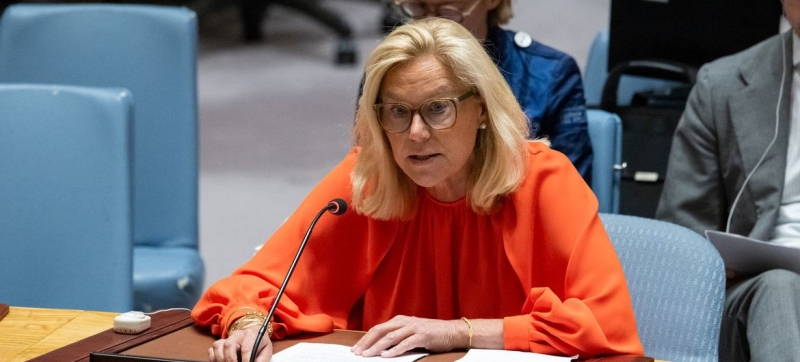
The UN Senior Coordinator for Humanitarian Affairs and Reconstruction in Gaza, Sigrid Kaag, spoke at the Security Council. The UN Security Council heard a report on the implementation of the resolution on humanitarian operations in Gaza Peace and Security
Work on Resolution 2720 is progressing, but humanitarian organizations in Gaza are calling for increased political efforts for a ceasefire, as well as full compliance with international humanitarian law and a safe environment to provide assistance to the population. The UN Senior Coordinator for Humanitarian Affairs and Reconstruction in the enclave, Sigrid Kaag, stated this at the Security Council on Tuesday.
More than a million people have been forced to flee since the Israeli offensive on Rafah began on May 6, Kaag said. She also expressed deep concern over reports of new evacuation orders in the Khan Younis area and their impact on civilians. An estimated 250,000 people are affected by the new orders, with capacity already full to accommodate them.
Aid Monitoring
Sigrid Kaag told Security Council members that she had continued to engage with key stakeholders since the previous briefing in April. In particular, two weeks ago she held a meeting with Israeli Prime Minister Benjamin Netanyahu and members of the country’s cabinet on the implementation of resolution 2720.
The resolution mandated the creation of a Monitoring and Verification Mechanism for humanitarian aid operations, Kaag recalled. According to her briefing, this mechanism is now in place for deliveries from Jordan, Cyprus, Israel and the West Bank. By mid-July, humanitarian supplies from Egypt will also be subject to verification. In addition, options for using the Cyprus Maritime Corridor with direct access to Gaza are being discussed, the Senior Coordinator noted.
She called on Member States to continue to pre-emptively deliver humanitarian supplies to replenish stocks, as well as to provide funding for humanitarian operations in the enclave.
Israel’s Commitments
Since the last briefing, the Office of the Senior Coordinator has been monitoring Israel’s implementation of its commitments related to Resolution 2720. Israel is already fulfilling some of them, Kaag noted.
In particular, she reported that humanitarian aid enters Gaza from the north through the Zikim and Erez checkpoints, and the port of Ashdod is also used. In addition, she said, permission was received to resume laying the power line to the desalination plant in Khan Yunis. However, the Nahal Oz water pipeline, which was also open, was reportedly damaged again during the fighting last night, Kaag said.
She also noted an increase in commercial cargo volumes , entering Gaza, “albeit irregularly.” According to the Senior Coordinator, her office is negotiating to ensure that commercial supplies meet the growing needs of the enclave’s population.
Insecurity
At the same time, since the start of the Israeli military operation in Rafah and the subsequent closure of the Rafah border crossing in early May, the volume of aid entering Gaza and distributed throughout the strip has decreased significantly, Kaag emphasized.
Read also:
Sigrid Kaag: alleviating the suffering of Gazans is our collective responsibility
“Military activities and the lack of safe routes inside Gaza continue to negatively impact humanitarian operations,” she said. Kaag also noted an increase in lawlessness and crime. “This alarming trend significantly limits the ability of the UN to fulfill its mandate,” added the Senior Coordinator.
“It is our duty to advocate for a lasting peace between Israel and a fully independent, viable and sovereign a Palestinian state, along with a secure and future-proof Israel,” she concluded her report.
